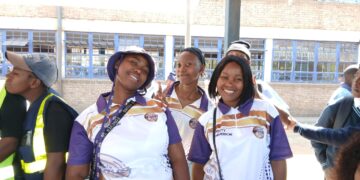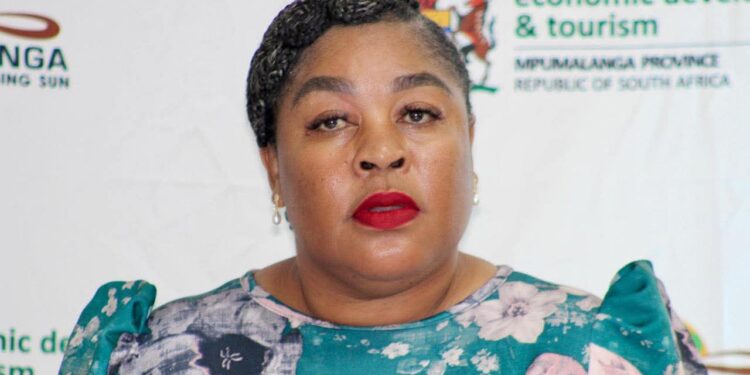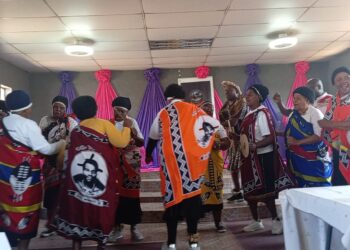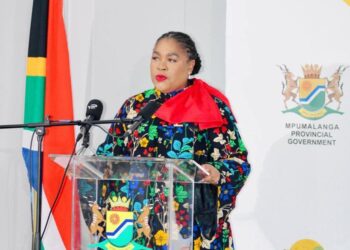Mbombela– As we honour women during this significant month, it is befitting to start by borrowing the words of the late former statesman and globally renowned freedom fighter, Nelson Mandela, who opined: “Freedom cannot be achieved unless the women have been emancipated from all forms of oppression.”
We also borrow from the late former President of Burkina Faso, Thomas Sankara, who said: “There is no true social revolution without the liberation of women.”
In their wisdom, both Mandela and Sankara fully appreciate the irrefutable fact that women are the bedrock of communities and societies in general. Thus, we must also take a moment and pay tribute to all heroines like Charlotte Maxeke, Lilian Ngoyi, Helen Joseph, Sophia Williams-De Bruyn, Rahima Moosa, Madi Hall-Xuma, Dorothy Nyembe, Adelaide Tambo, Albertina Sisulu, and Winnie Madikizela-Mandela, to mention just a few.
We pay tribute to these freedom fighters because they challenged the status quo during a time when the social, political and legislative landscape was defined by discriminatory norms and traditions. Therefore, during this month, we need to reflect and celebrate the inestimable role that women played in the struggle for the
liberation and attainment of democracy, particularly in South Africa, and to an extent, other African countries.
It was during the month of August, in 1956, that more than 20,000 women staged a historic march to the Union buildings to protest against the extension of pass laws to women. Courageous women, from across the country, stood in silence for 30 minutes and thereafter proceeded to sing the now famous revolutionary song: Wathint’abafazi Wathint’Imbokodo!
In stark contrast to what the visionary forebears who wrote the Women’s Charter 74 years ago, women in South Africa live in fear as they bear the worst poverty, economic exclusion, and unprecedented nightmare of gender-based violence and femicide.
Where we are, women do not live as equals to their male counterparts, women live in fear due to violent crimes and senseless gender-based violence. In the main, several aspects of gender-based violence and femicide are directly linked to the lack of women’s empowerment.
As a government, our role, therefore, is to put in place policies and strategies that will pave the way for the acceleration of economic growth, for the benefit of women.
This is because the economy remains skewed and is not reflective of the demographics of the province of Mpumalanga and the country at large. Women remain marginalised and are languishing on the periphery.
While the government has introduced progressive legislation to deal with the scourge of gender-based violence, it remains stubbornly persistent in our communities. In acknowledging the historic and indispensable role that women played in the struggle for liberation and the consolidation of South Africa’s democracy, the African National Congress (ANC)-led government has, since 1994, prioritised the advancement of women’s rights as a cornerstone of our democratic project.
Guided by the principles enshrined in the ANC Manifesto, particularly the commitment to the full emancipation and empowerment of women, the 7th Administration reaffirms its unwavering resolve to give effect to the Women’s Charter for Accelerated Development.
This Charter, which aligns with our vision of a non-sexist, inclusive society, remains a strategic policy instrument in our pursuit of a South Africa where women live free from all forms of discrimination, marginalisation and systemic inequality.
We are called upon, at this defining juncture, to decisively shift the narrative that confines the recognition of women’s contributions to the symbolic observance of Women’s Month. It is imperative that we institutionalise a sustained and programmatic approach that affirms, mainstreams, and celebrates the multifaceted contributions of women to nation-building and societal transformation.
As we pay homage to women, we ought to give a proper direction on how, through government economic stimulus packages, we will open the doors for our women to meaningfully participate in the mainstream economy.
In strategic partnership with Development Finance Institutions, we remain steadfast in our commitment to provide both financial and non-financial interventions to SMMEs and cooperatives, with a deliberate bias toward entities owned by women and youth. This forms part of our broader mandate to give practical expression to the objectives of the Women’s Charter, which seeks to catalyse inclusive economic transformation by unlocking the full economic potential of women.
As we commemorate Women’s Month, we must remain firm and united beyond party lines in our conviction, particularly when championing the aspirations of women, who are, by and large, the previously disadvantaged group. We must continue to be aggressive in our fight to dismantle the unrelenting hegemony that our male counterparts have been enjoying since time immemorial.
Jesta Sidell is the Mpumalanga MEC for Economic Development and Tourism























